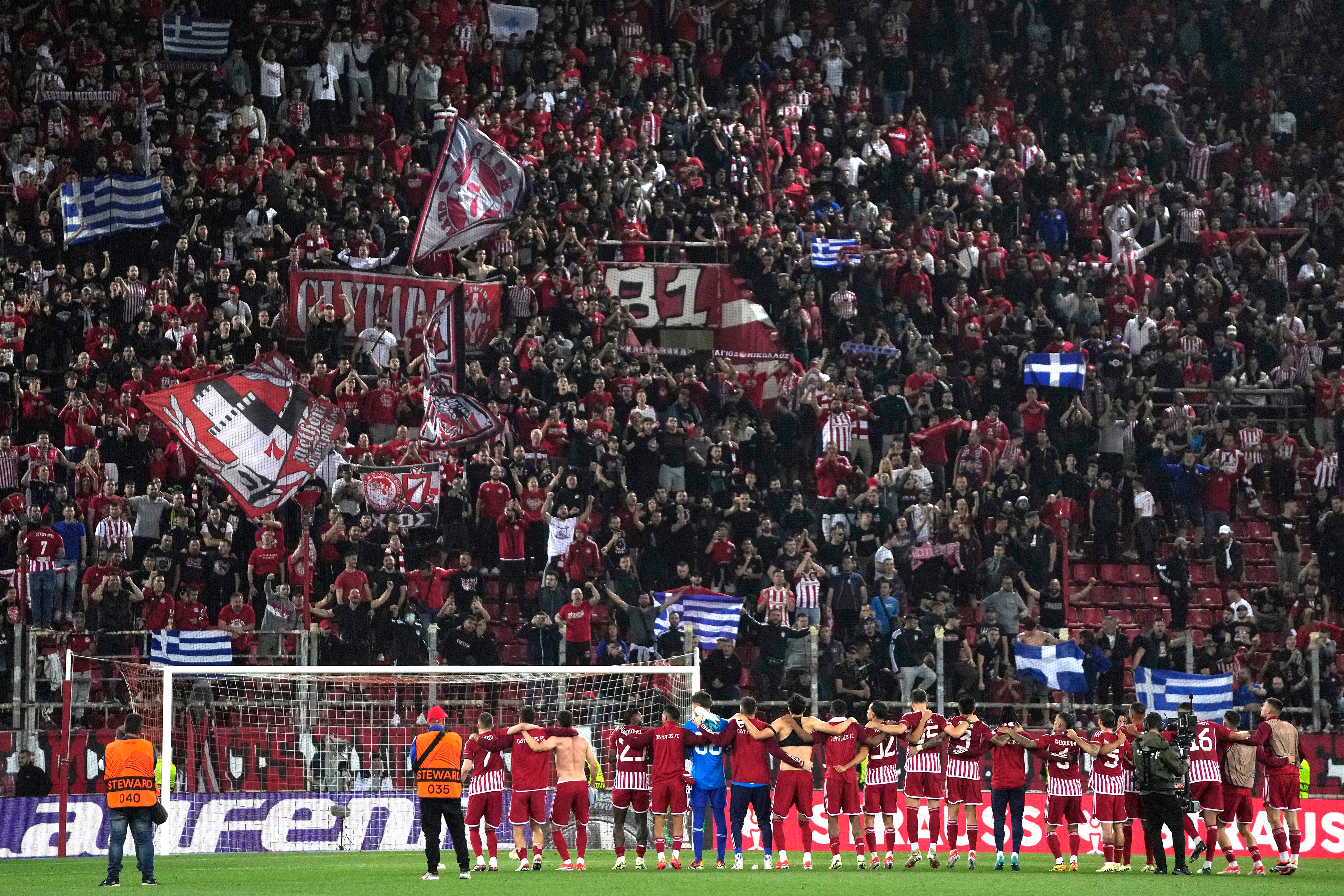Greek police arrest 63 people in football hooligan crackdown after string of murders
An AEK Athens fan was stabbed to death in clashes before the team’s Champions League game against Dinamo Zagreb

Your support helps us to tell the story
From reproductive rights to climate change to Big Tech, The Independent is on the ground when the story is developing. Whether it's investigating the financials of Elon Musk's pro-Trump PAC or producing our latest documentary, 'The A Word', which shines a light on the American women fighting for reproductive rights, we know how important it is to parse out the facts from the messaging.
At such a critical moment in US history, we need reporters on the ground. Your donation allows us to keep sending journalists to speak to both sides of the story.
The Independent is trusted by Americans across the entire political spectrum. And unlike many other quality news outlets, we choose not to lock Americans out of our reporting and analysis with paywalls. We believe quality journalism should be available to everyone, paid for by those who can afford it.
Your support makes all the difference.Greek police have arrested 63 people on charges of being members of a criminal organisation with links to sports violence in a crackdown on hooliganism in the country.
Sport in Greece has been marred by violent incidents on and off the pitch in recent years.
In August 2023, AEK Athens fan Michalis Katsouris was stabbed to death in violent clashes before the team’s Champions League game against Dinamo Zagreb. A year earlier, Greece was shocked when 19-year-old soccer fan Alkis Kampanos died in fighting between rival groups.
Most of the people arrested are fans of the Olympiakos sports club. Lawyer Vaso Pantazi, representing two of those arrested, told Reuters her clients have denied the accusations.
The arrests on Monday were part of a wide operation that involved raids at 87 homes and the confiscation of evidence including mobile phones, laptops, knives and airguns.
Police have identified 160 suspected members of the criminal group which has been operating at least since 2019, officials said. They are accused of crimes ranging from illegal possession of drugs, weapons and explosives to robbery and manslaughter.
The investigation was prompted by the death in December of 31-year-old riot police officer Georgios Lyngeridis, who was severely injured by a flare in clashes between riot police and a group of volleyball fans during a match between Olympiakos and Panathinaikos. He later died from his injuries.
More than 400 people had been detained over that incident and most have provided DNA samples. One man is in prison pending trial over Lyngeridis’ killing.
Based on that evidence and testimonies of three witnesses under protection, police built the case which pointed to the existence of a criminal organisation operating in Athens and other Greek cities with the aim of committing crimes against police and rival teams.

Olympiakos Vice President and legal adviser Alexis Kougias told Reuters that the team and its owner “are not linked to the case and those accused in any way”.
Following the killing of Lyngeridis, the government was forced to take safety measures including the installation of surveillance cameras at pitches and courts.
To attend matches, fans will eventually need to identify themselves via a government mobile phone application at the entrance of the venue. The system is partly in place.
Last year, UEFA president Alexander Ceferin urged Europe to help eliminate hooliganism, which he called “the cancer of football”.
Elsewhere in Greece attacks against migrants, refugees and LGBT people in Greece surged to their highest level in nearly a decade last year, a report by the Athens-based Racist Violence Recording Network (RVRN) found on Tuesday.
The network recorded 158 attacks in 2023, up from 74 in 2022. Of those, 89 targeted migrants, refugees or asylum seekers and 61 targeted LGBT people, it said.
Violence was at its highest reported levels since 2015, when Greece was on the frontline of Europe’s migration crisis. The actual number is likely higher, however, as many victims do not report crimes, RVRN said.
Hostility towards migrants remains widespread in Greece, where three ultra-nationalist parties won seats in parliament in last year’s election.
Join our commenting forum
Join thought-provoking conversations, follow other Independent readers and see their replies
Comments